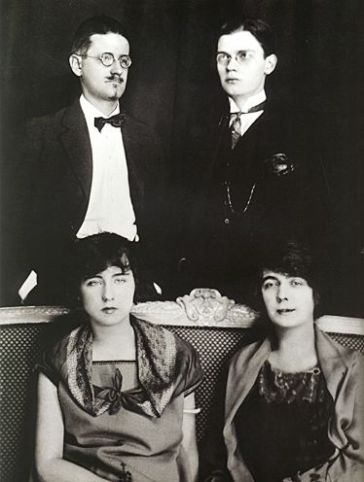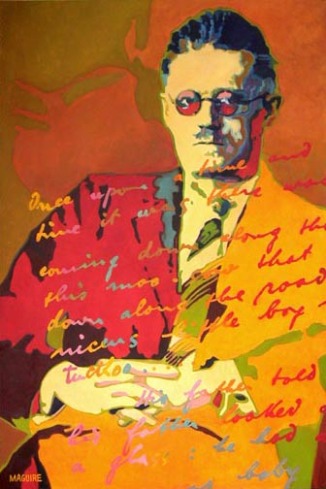
James Joyce looking like you’d expect, based off his writings.
A (moderately) short biography:
James Joyce (full name James Augustine Aloysius Joyce) was born on the 2nd of February 1882 to John Stanislaus Joyce and Mary Jane Murray in a small suburb of Dublin, Ireland.
At the age of 17, Joyce enrolled in a local university, where he studied English and Italian. At 21, he traveled to Paris to study medicine, but soon dropped out and spent months of his time, and his family’s money, reading and writing.
Joyce returned home shortly after, summoned by a telegraph sent by his father about his mothers imminent death. He spend his time back home drinking heavily, writing book reviews to survive. He attempted twice to publish an essay/novel on the nature of Aestheticism, the second attempt the essay was reworked into a semi-autobiographical piece that would later become A Portrait of the Artist as a Young Man.
In 1904, he met is would-be wife, Nora Barnacle, with whom he moved to Zurich, Switzerland for a teaching position, which turned out to be a con. He went around to several more schools before settling in a city in Croatia where Nora gave birth to their first son, George, and Joyce managed to convince his brother to join him as a teacher. In 1906 he moved to Rome, and then returned a year later. He spend the next decade or so teaching in Croatia, and traveling to and from Dublin to iron out problems with his publisher. His wife later gave birth to his daughter, Lucia, around this time period.
In 1915, at the outbreak of World War I, Joyce moved back to Switzerland, and met a man who would become a good friend of his, Frank Budgen. Frank would later introduce him to Harriet Shaw Weaver, who would later “sponsor” him, so to speak. His time in Switzerland was perhaps his most productive, writing Exiles, A Portrait of the Artist as a Young Man, and Ulysses.
He moved to Paris in 1920, and remained for twenty more years, finishing Ulysses with help from Harriet. It was around this time he began to gain more and more fame, just as his eyesight became worse and worse. He frequently traveled to Switzerland to undergo treatment for his ailing vision, and for his daughter, who was diagnosed with Schizophrenia. His daughter was treated by Carl Jung, who upon reading Ulysses concluded that Joyce was also suffering from Schizophrenia.
In 1941 he died in Zurich after fleeing Paris from the Nazis.



